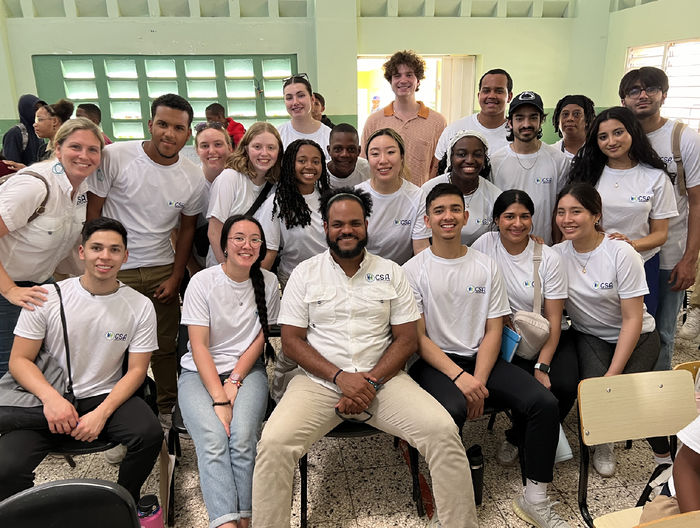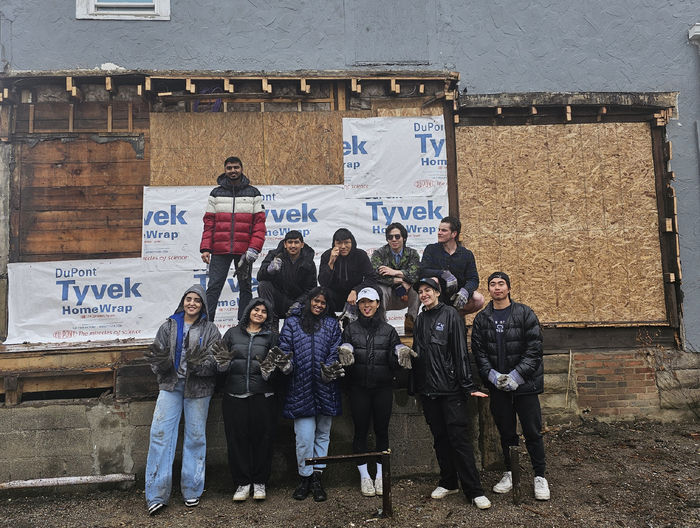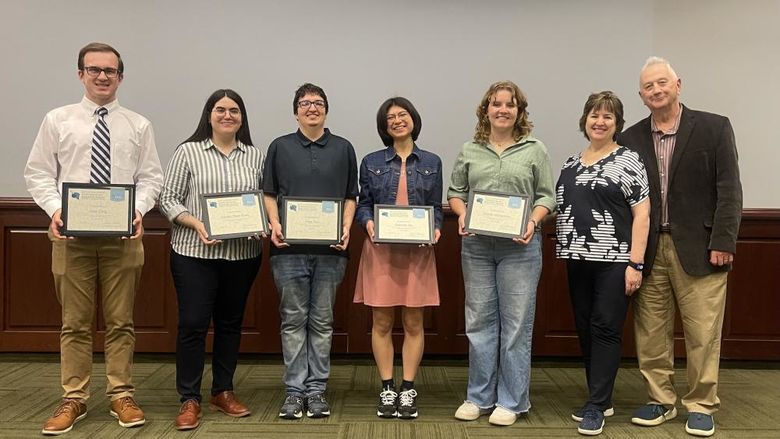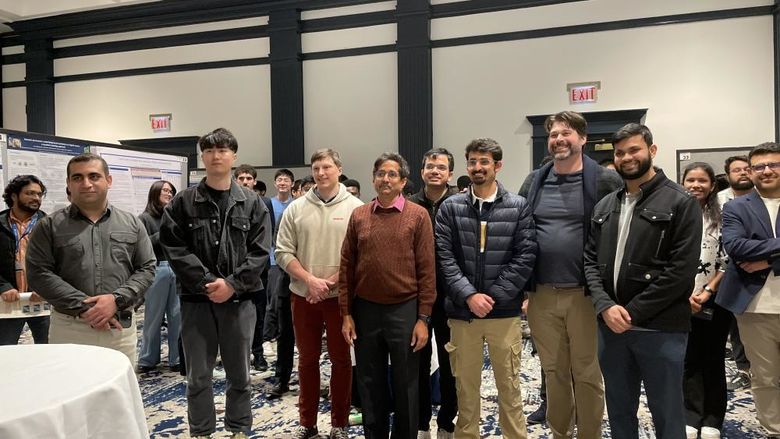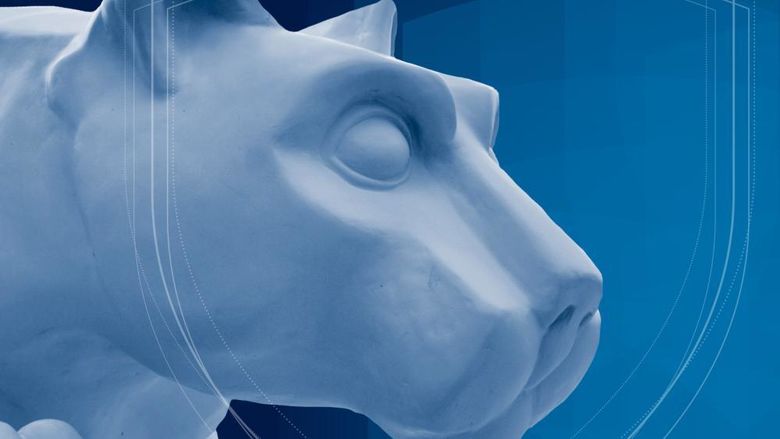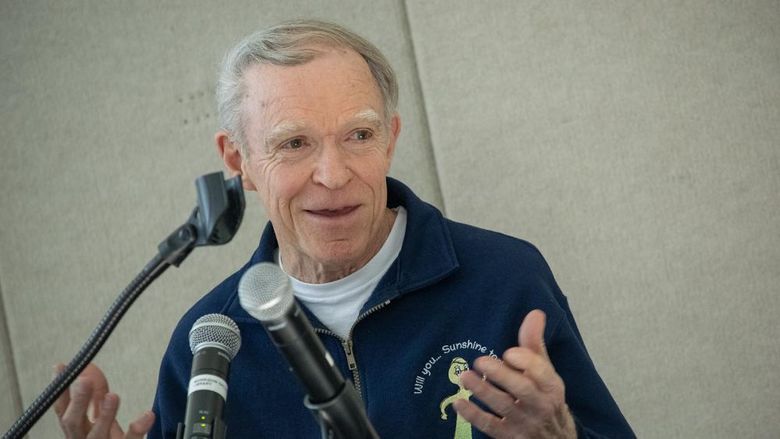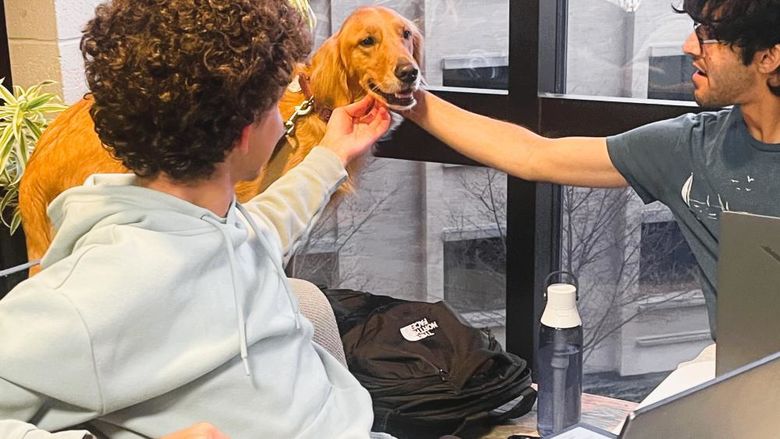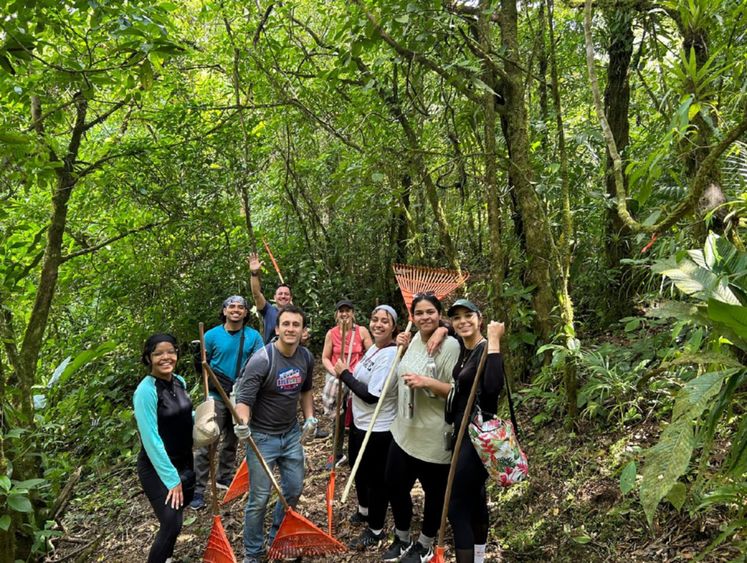
On an alternative spring break trip to Costa Rica, Penn State Harrisburg students learned about caring for animals at a wildlife rehabilitation and conservation reserve, helped out at a sustainable family farm, and spent a day helping with cleaning and trail maintenance in the rainforest.
MIDDLETOWN, Pa. — For some Penn State Harrisburg students, spring break meant doing some light construction work in Cleveland, Ohio; constructing outdoor learning space and teaching leadership skills at a school in the Dominican Republic; and learning to tend crops at a sustainable farm in Costa Rica.
Alternative spring break trips, organized through the Office of Student Engagement, offer students a chance to learn about social issues while also participating in hands-on service work. This year, Penn State Harrisburg students, alongside faculty and staff advisers, attended alternative spring break trips in three locations: the Dominican Republic, Costa Rica and Cleveland, Ohio.
Costa Rica
On a trip to Costa Rica, coordinated by the college Latino Club, students learned about caring for animals at a wildlife rehabilitation and conservation reserve, and helped at a sustainable family farm, where they learned about crops, farm systems and the family’s cheese business.
They also spent a day in Bosque Eterno de los Ninos, a cloud forest, where they completed trail maintenance, cleaning and other small construction projects. A guide provided information on the forest and its future development.
In addition to working at the various locations, the students were able to experience whitewater rafting and ziplining.
Computer science major Maliha Doria said every activity was amazing, whether the group was cleaning trails in the rainforest or learning about local wildlife conservation.
“I am truly grateful for the opportunity to not only contribute to these important initiatives but also to gain a deeper understanding of the ecosystems and the impact of our actions on the environment,” she said.
Working at the wildlife sanctuary and seeing animals such as spider monkeys and toucans in their natural environment, was eye-opening and educational, she said. She left Costa Rica with a renewed sense of purpose and a determination to continue advocating for environmental conservation.
“I am excited to apply the knowledge and skills gained during this trip to make a positive impact in my community and beyond,” she said.
Pepe Renteria, a mechanical engineering major, said he grew a better appreciation for animals and the environment, and learned how laws and culture differ in Costa Rica.
“The trip even showed me concepts from my engineering classes, seeing a cheese factory that is very small and local but was applying many of the engineering practices I was just learning last semester,” he said.
Patricia Aguilera, a faculty adviser on the trip, said a highlight for her was seeing students discuss global environmental issues.
“When we do service in our country, we help people and make a difference in a community,” she said. “But when you are in another country, you compare things — laws, cultures — and see the importance of understanding other people's needs and ways of living. Also, you reflect on your values and the need for global research with a strong ethical and multicultural approach.”
Dominican Republic
Student Michael Villalona Nuñez had a special reason for wanting to take a service trip to the Dominican Republic — the electrical engineering technology major was born there.
“It’s always been a dream of mine to give back to my home country, so what better way than to bring along — with me — 16 other individuals that are passionate about helping others and making a permanent impact,” said Villalona Nuñez, who coordinated the trip along with fellow student Chelsy-Sippora Funebe.
The students on the trip worked with a nonprofit organization that seeks to create opportunities for rural women and youth. The students led workshops at schools on topics including leadership; constructed an outdoor learning space for a school that had no electricity to make the indoor space tolerable in the heat; and built a cistern at another school without electricity or water. They painted murals with themes related to staying in school and reflecting world geography, and they played softball, volleyball and soccer with the community through sports clinics.
“The entire journey was extremely unforgettable and has changed us all for the better, in bringing us new perspectives on life and the simplicity of it,” Villalona Nuñez said. “It’s amazing to see the dynamic created when you insert a group of people in an environment for an entire week, with limited internet, to find entertainment amongst themselves and work as a team to aid a community.”
He added that alternative spring break trips are a great opportunity for all students.
“I’m confident that the people we were going into the trip are not the same people that came out,” he said.
Cleveland, Ohio
This year, the college’s International Students Office arranged an alternative spring break trip to Cleveland, Ohio. The trip is designed for international students.
While in Cleveland, the students worked with an organization that aims to strengthen neighborhoods. They worked on beautification projects such as painting, helped with light construction to make building repairs, and they spent time with children in an after-school program, assisting with homework or playing games.
The students were also part of training sessions on subjects such as poverty cycles, sustainability, racial wealth gap issues, and refugee resettlement challenges.
Giulia Cantella, a psychology major, noted one activity that asked the students to split up into “families” and shop on a budget for groceries in an area considered a "food desert."
“From this experience, I learned about the struggle that many families and many people face,” Cantella said, noting that those struggles can be hard to relate to when they are not personally experienced. “It’s easy not to think about it.”
Cantella said a highlight of the trip for her was working through challenges with a positive attitude and working together with her team.
